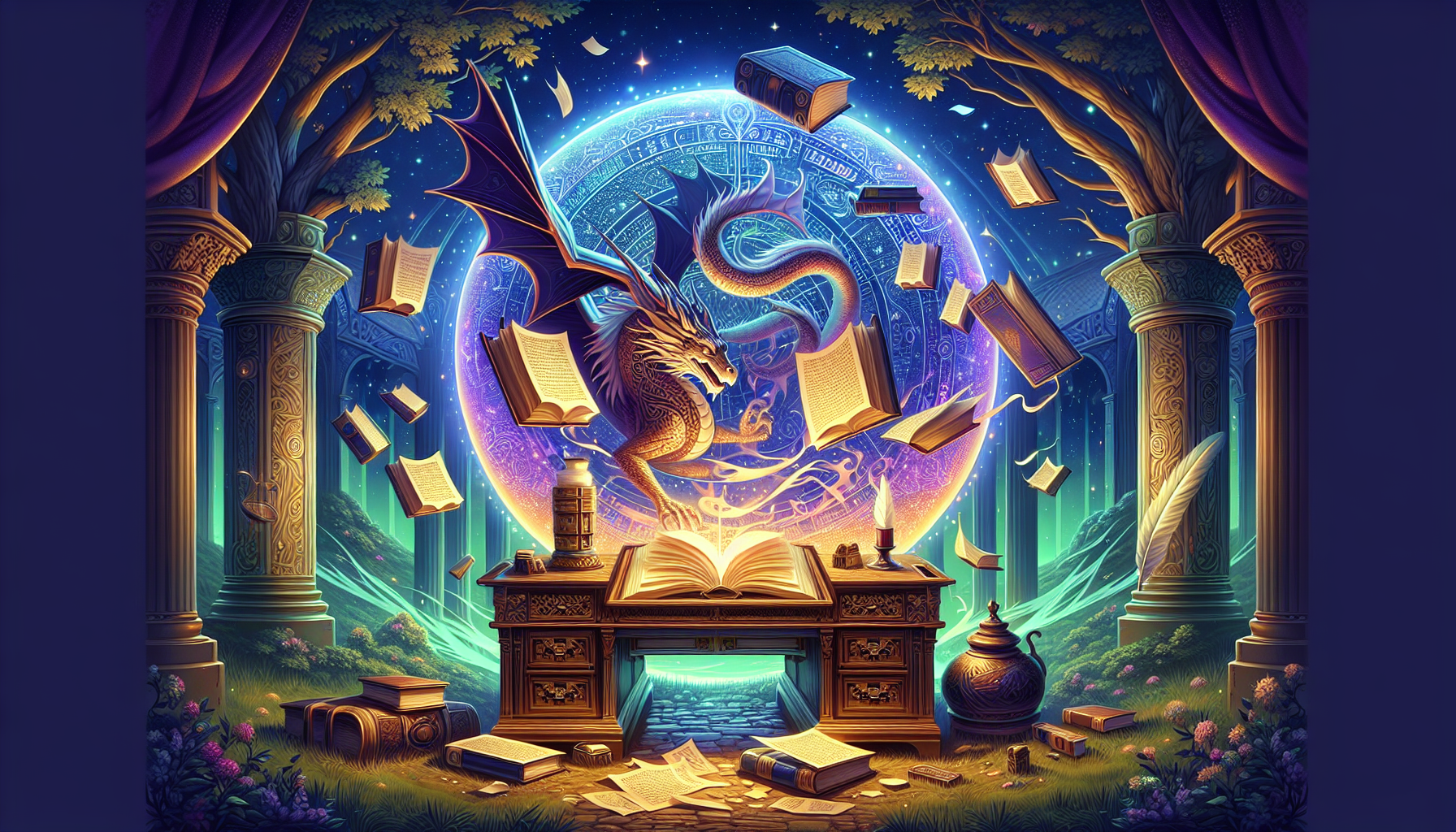
Once Upon a Time in Screenland: Crafting Your Fantasy Screenplay
So, you want to write a fantasy screenplay? Fantastic! Literally. You’re about to embark on a journey where dragons dare to tread, spells are slung with the casual nonchalance of a Frisbee in a park, and you—yes, you—get to play god with worlds unbound by the drab rules of pesky reality. But before you mount your trusty steed (or ergonomic office chair), let’s unpack the elixir to concocting a script that could potentially bewitch audiences and impress bespectacled critics alike.
Know Thy World: World-Building 101
First things first! Your fantasy is only as good as the world it’s built on. New to world-building? Panic not! Consider this your Constructing Realities for Dummies. Rule one: consistency is key—whether your society operates on steampunk technology, ancient magic, or has evolved under the dictatorship of sentient plants. Map it out. Which holidays will they celebrate? What’s considered a faux pas? Know it like the back of your quill-hand. Remember, a detailed world provides a vibrant backdrop against which your characters will shine (or ominously darken).
Characters with Charisma (and perhaps a touch of chaos)
You might think that in fantasy, anything goes. While that might be true for your landscape, your characters need still to resonate with earthly audiences. They need flaws, dreams, quirks, a peculiar fondness for mushroom stew—anything that makes them relatably human (even if they’re elves or trolls). Your hero should have the charm of a rogue with a secret heart of gold, and your villain should, at the very least, have a compelling reason for world domination (beyond poor real estate investments).
The Lure of the Lore
Your fantasy world has a history, and boy oh boy, should it be juicy! We’re talking creation myths that involve cosmic egg cracking, legendary heroes whose stories are told during dark, stormy nights, and prophesies passed down through reluctant prophets. This lore is the lifeblood of your narrative. It can guide plot twists, character motivations, and even add depth to your world’s visual aesthetics. Hint: all great conflicts have deep roots in even greater hist lore.
Dialogue: Speak Fantasy, but Keep It Real
Yes, it’s tempting to pepper your screenplay with thee’s and thou’s, yet, beware the curse of olde world speak fatigue. Your dialogue must be a bridge between the fantastical and the modern audience. If someone’s about to get eaten by a kraken, now is not the time for a monologue—unless it’s humorously inappropriate. Be bold, be lyrical, but most importantly, be clear. If there’s an ancient slang, let your audience in on the meaning with context clues. Wit, my dear scribe, often makes more converts than a sword.
The Stakes Have Never Been Higher!
Imagine this: your protagonist is standing on a cliff-edge; a tempest howls, the antagonist cackles maniacally in the background, and all hope seems as lost as last year’s tax returns. Classic! In fantasy, stakes must be high and personal. Maybe your world’s survival hinges on the protagonist’s success, or perhaps it’s a quest for revenge after a jilted sorcerer turns your character’s beloved into a particularly unattractive toad. Whatever high stakes mean in your realm—double down on them. No pressure, right?
A Word on Magic Systems
Oh, the spark! The flair! The absolute convenience of a well-timed magical spell! When devising your world’s magic system, ask thyselves—what is the cost? Magic, like good dialogue, should not solve every hiccup in your plot unless you want your screenplay to dive into the depths of deus ex machina despair. Set rules. Perhaps spells require a part of the caster’s soul, or maybe two spells can’t be cast simultaneously. Limits foster creativity—embrace them.
Swan Song: The Ending
And now for the grand finale where you must deliver a conclusion so stirring, it’ll leave your audience spellbound. The ending of your fantasy saga should tie up loose ends without being predictable. It’s your ultimate magic trick, revealing that the true queen was the peasant girl all along, or that the power to save the world was inside your hero’s heart from the very start. Make it memorable, make it poignant, and above all, ensure it feels earned.
There you have it—a primer to penning your fantasy screenplay. Gather your notes, chart your characters, and prepare to draft and redraft until your fantasy world breathes as palpably as the one outside your window. Happy writing, you creator of cosmos!






